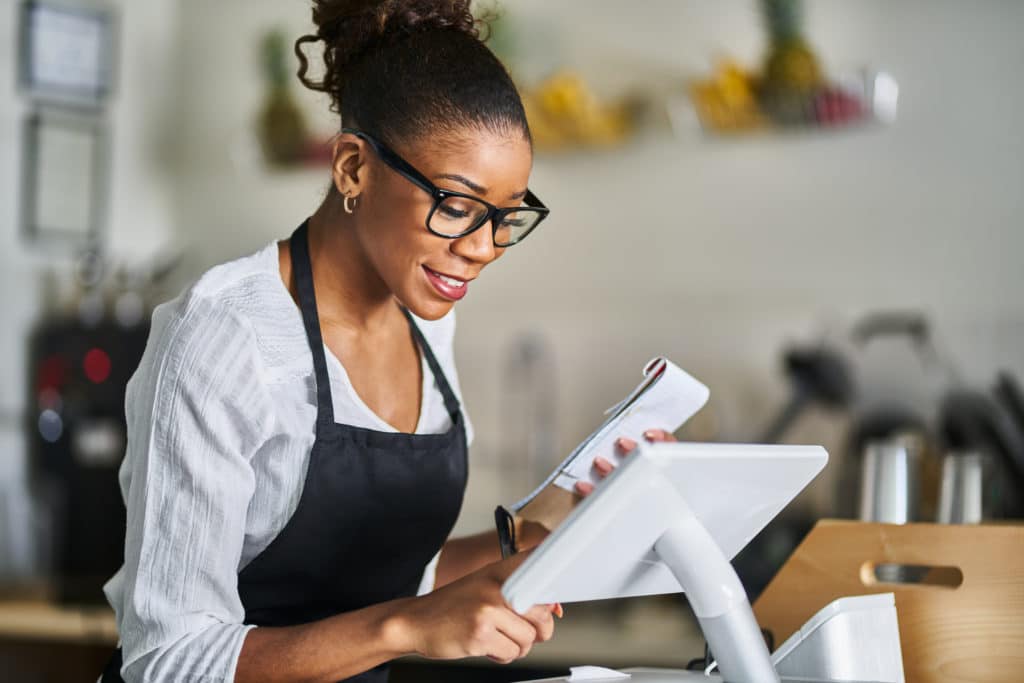Accounting is an essential part of running every successful business. But it is even more important for tight-margin industries like ours where every dollar spent needs to be accounted for in order to increase profitability.
What is accounting software for restaurants?
It is common practice for businesses to start their journey with Excel spreadsheets or generic accounting software. However, as day-to-day bookkeeping tasks become complex, it can be difficult to make informed decisions to improve profitability while growing a business without features that restaurant-specific software provides. Having a full scope of intercompany transactions, POS integration as part of the software, automated bank reconciliation, and real-time reporting specialized for a specific business can make a significant difference in company success.
Learn more with our free guide: Guide to Modern Restaurant Accounting
Can a restaurant use generic accounting software?
Absolutely. This isn’t to say generic solutions are inferior, but they are simply not built to fulfill the specific needs of restaurant operators. Unlike standard retail businesses, restaurants are manufacturing their product at the same time they’re selling it. Because of that, there are many complexities that come with purchasing product, recording waste, managing inventory and labor, and more.
However, investing in restaurant-specific tools will save operators time and money by eliminating the time-consuming, manual workarounds often needed to force a “one size fits all” big box solution to perform restaurant-specific tasks, processes, reporting, etc.
Do I need restaurant-specific accounting software?
The short answer is no. Many restaurants start out using spreadsheets because they are basically free, easy to use, and highly customizable. You can use a spreadsheet for almost any function in your restaurant from inventory, invoicing, prep lists, food costing, scheduling, accounting, you name it.
However, at some point, you may question whether it is time to purchase restaurant accounting software because you are spending too many hours in the back office and still not able to take full advantage of the data you are collecting to grow your business to its full potential.
With restaurant-specific accounting systems that are integrated directly with the Point of Sale (POS) system you can save both time and money through the automation of time-consuming tasks such as scheduling, inventory, ordering, paying vendors, producing financial statements, and more while reducing the chance of errors.
7 benefits of restaurant-specific software
Cloud-based
Restaurant-specific accounting software bridges the gap between accounting and operations by centralizing all data, helping restaurant operators to become more efficient, accurately forecast, and tackle any challenge or opportunity with speed and accuracy. For example, if operators can enter inventory directly into a software system with an iPad, rather than transferred from pen and paper, timing and accuracy improves. Given more accurate input, accountants can spend time analyzing rather than cleaning up errors.
Single sign-on
Forward-thinking operators are implementing restaurant-specific accounting systems, which help to manage the company’s operations through a streamlined system. A restaurant-specific system allows operators and accountants to log into the same system, creating transparency between teams and saving time by eliminating the need to email questions and reports back and forth.
POS integration
A point-of-sale system contains information essential to many business operations. Generic accounting systems require operators to import data manually, often resulting in hours of additional work and inevitable human errors.
More specific accounting systems that include POS integration allow operators of stores and restaurants, for example, to effectively pull detailed data automatically. This saves the expense of a custom POS integration, but it also facilitates accurate accrual journal entries in the accounting general ledger.
Customizable reports
When reporting is automated via a restaurant-specific system, accountants save time and operators can easily dig into their data in real time—any invoice is just a few clicks away. Get accurate, timely data that’s easy to find and share. See what’s working, what’s not, and what’s happening in real-time with out-of-the-box and custom reports to help drive improvement, growth, and expansion.
Real-time access to data
Having access to real-time information such as sales, COGS, labor, etc. can help you save money. An alert that you have an employee about to go into overtime saves you money rather than seeing it on a report at the end of the shift (or worse, at the end of the pay period).
Automated bank reconciliation
Tracking and reconciling bank transactions daily is an effective way to manage the books and identify discrepancies immediately. Generic accounting software may pull data or provide a summary, but it cannot automate bank reconciliation for restaurants that have multiple locations and need to add efficiency.
Vendor integration
A feature allowing vendors to upload documents into the accounting system with a direct integration enables vendors to add their own invoices and credit memos. Without the accounting team or store managers manually entering the data from these vendor transactions, the AP automation process is simplified, saving time and money.
One franchisee with more than 300 locations reported that it used to take a full day to process weekly franchisee billing, equating to 20% of the accounting team’s time. By automating the process, it now takes only 30 to 45 minutes from start to finish.
Conclusion
As a restaurant owner, you can help your teams save time, minimize errors and better work together by discovering and implementing the systems that will help them get on the same page. Restaurant365 is a fully integrated, restaurant-specific solution for accounting – including AP automation — plus inventory management, scheduling and more. The cloud-based platform connects to your Point-of-Sale system, as well as to your food and beverage vendors, payroll vendor and your bank for automated bank reconciliation.



